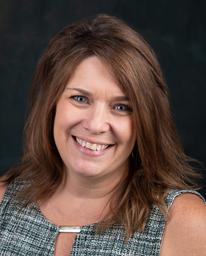
I am an Associate Professor of Speech-Language Pathology with experience as a translational neuroscientist and clinician. As a faculty member at a Carnegie M2 institution, my role is divided between teaching, service and research. My research agenda targets investigating the physiologic mechanisms of neurological recovery in children and adults after acquired brain injury or stroke and creating novel interventions to optimize functional recovery. To date, I have primarily targeted the measurement of maladaptive plasticity within the motor cortex using non-invasive neuromodulation which has served me well as I shift my research focus to interrogating the neuroplastic potential of the cerebello-cortical networks in health and disease.
In addition to single, paired pulse and repetitive transcranial magnetic stimulation (TMS) and transcranial direct current stimulation (tDCS), I have incorporated resting state electroencephalogram into my skill set. I believe the mindful use of these tools can provide insight into the physiologic mechanisms associated with cross cerebello-cortical diaschisis and can serve as a benchmark for neuroplastic change associated with recovery. I am currently PI on an intervention study combining cerebellar tDCS with constraint induced language therapy in adults with post-stroke aphasia. In addition to behavioral language and working memory assessment, spectral power oscillations and coherence of the left and right frontal regions are being used as outcome measures to assess the impact of cerebellar stimulation on frontal language networks.
Use of spectral power and coherence of frontal cortical regions captured through resting state EEG to reflect the integrity of the cerebello-cortical networks and pathophysiology of cross diaschisis is a novel approach, but has great potential to inform diagnosis, prognosis and measure recovery across diagnoses including children with cerebellar mutism syndrome (CMS) following posterior fossa tumor resection, another population of interest. I have extensive clinical experience with this population and my service to the Posterior Fossa Society (PFS) over the years has expanded my network of collaborators which has driven my research agenda. Clinical experience has tuned me into relevant rehabilitation needs of children with CMS, service on the PFS has provided me a rich network of experts and interdisciplinary collaborative partnerships and my research expertise and experience has me well-poised to move forward with my research agenda which includes 1) creating and establishing a novel method for using EEG to measure the integrity of the cerebello-cortical networks across populations and 2) combining behavioral practice and experiences with non-invasive brain stimulation to create effective, sustainable intervention protocols for children and adults that will result in not only recovery of the cerebello-cortical networks, but also optimal functional recovery.